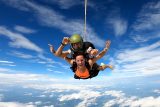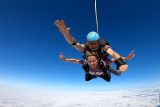Does Skydiving Hurt Your Ears?
Blog
 Posted by: Curtis White
3 years ago
Posted by: Curtis White
3 years ago
Ah, the oft-overlooked ear. It facilitates our ability to hear and plays a crucial role in maintaining an innate sense of balance and direction. For example, ensuring up is up and down is down. With such big responsibilities, it makes sense to want to protect those precious folds of skin on either side of our noggins as best we can.
When it comes to skydiving, you might assume the most common injuries to be twisted ankles or tweaked knees, but it’s actually something usually unseen: ear damage. The good news is it’s completely preventable. Here’s what you need to know to protect your ears from injury during skydiving.
How Can Skydiving Hurt Your Ears?
If the proper precautions are taken, skydiving does not hurt your ears. Although, there are certain instances where uninformed choices could result in discomfort or, worse, damage to the eardrum.
Skydiving Can Be Very Loud
Skydiving is a decibel-rich experience. From the thunderous hum of the plane’s engines to the rush of wind in freefall, there’s quite a bit of noise involved in the skydiving experience. While one jump is unlikely to drastically affect your auditory health, repetitive exposure could do some damage.
Even if you are only joining us for a one-and-done tandem skydive, it doesn’t hurt to come prepared. If you have them, pack a pair of trusty earplugs, and put them in just before you board the plane.
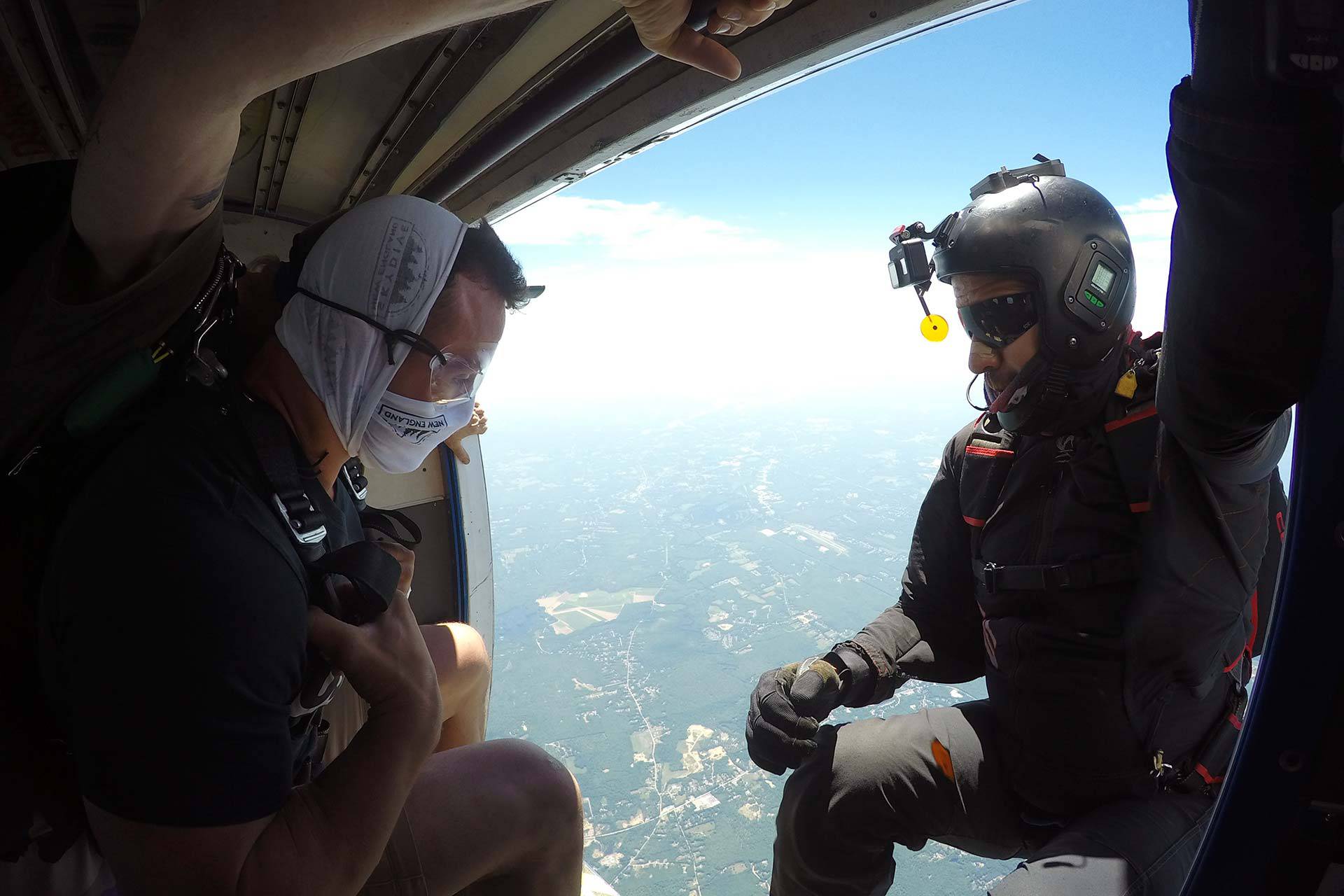
Ear Pressure in the Airplane
While on a commercial flight, you might have noticed a significant amount of pressure during ascent and descent. Thankfully, this is typically not the case when skydiving.
Skydiving aircraft do not pressurize at a certain altitude as a commercial aircraft does. This means you experience the change in pressure during ascent in real-time, i.e. gently, as the plane climbs in altitude. Generally speaking, the most you will feel is a bit of “stuffiness,” and, unless you were already sporting backed-up sinuses, it’s usually painless. (We’ll cover skydiving with cold or impacted sinuses a little later.)
Ear Pressure in Freefall
In freefall, you experience the altitude change more quickly than you do on the ride up. Because the air is thinner at exit altitude, the exterior pressure is less than that within your ear. The environment within and outside of the ear “wants” to reach an equal pressure level. Thus, the “pressure” wants to push from the inside out.
However, as you fall, the air gets thicker (the pressure increases), and then the reverse occurs: the pressure inside decreases as the outside pressure increases. Sometimes, the result of this exchange is a feeling like having your ears filled up or stuffed up. Luckily, this is easily remedied with a little ear equalization action.
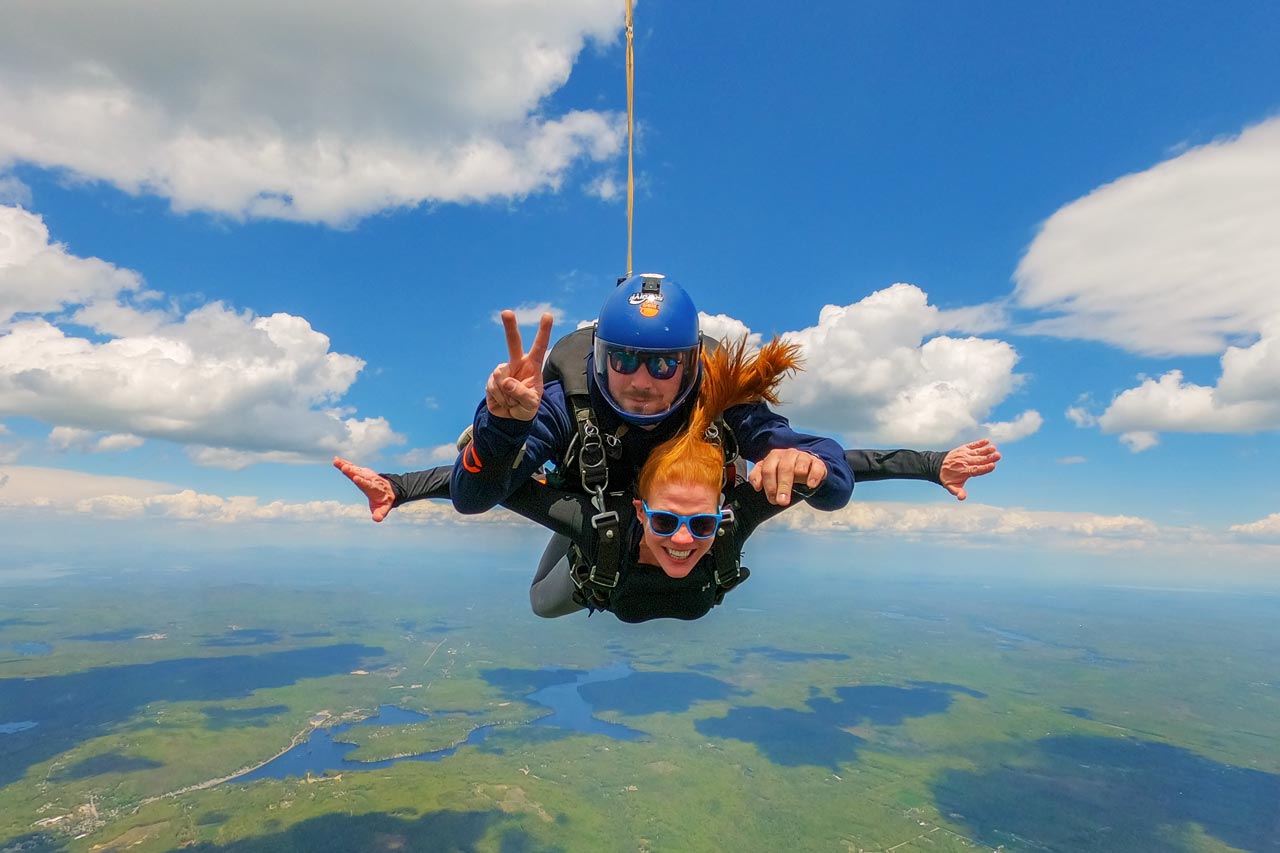
Unblocking Ears After Skydiving
After landing, you can equalize your ears by pinching your nostrils closed and gently (and we emphasize gently) blowing through your nose while keeping your mouth closed. Sometimes, even swallowing or yawning can be enough to help restore balance and equalize your ears.
Skydiving With a Cold
Aside from sharing your germs (no, thank you) skydiving with a cold (and even residual stuffiness) is not advised. When you have a head cold or congested sinuses, the eustachian tube (which connects your middle ear to your throat and just so happens to prevent pressure from building up in the ear) can be blocked or plugged. If the eustachian tube is blocked, it is unable to relieve pressure build-up and drastic pressure changes like the kind you experience during skydiving. In extreme cases, skydiving with a cold, and subsequently, a blocked eustachian tube can result in a burst eardrum. Can you say “ouch”?!
In our opinion, it’s better not to risk it. If you’re feeling congested, do yourself a favor and reschedule! Keep yourself hearing clearly and take care of your ears when you skydive!
Have any other questions about skydiving and those precious auditory appendages? Don’t hesitate to give us a call.
Categories:
You May Be Interested In:
Enter to Win a Free Skydive
Join our email list and enter to win a free tandem skydive. Drawings in April and December; winner announced on social media.
You’ll get a $10 coupon toward a tandem just for signing up! Must be 18 and under 240 lbs to jump.
*By submitting this form, you are consenting to receive marketing emails from Skydive New England, 40 Skydive Lane, Lebanon, Maine 04027. You can revoke your consent by using the SafeUnsubscribe link located at the bottom of every email. Emails are serviced by Constant Contact.
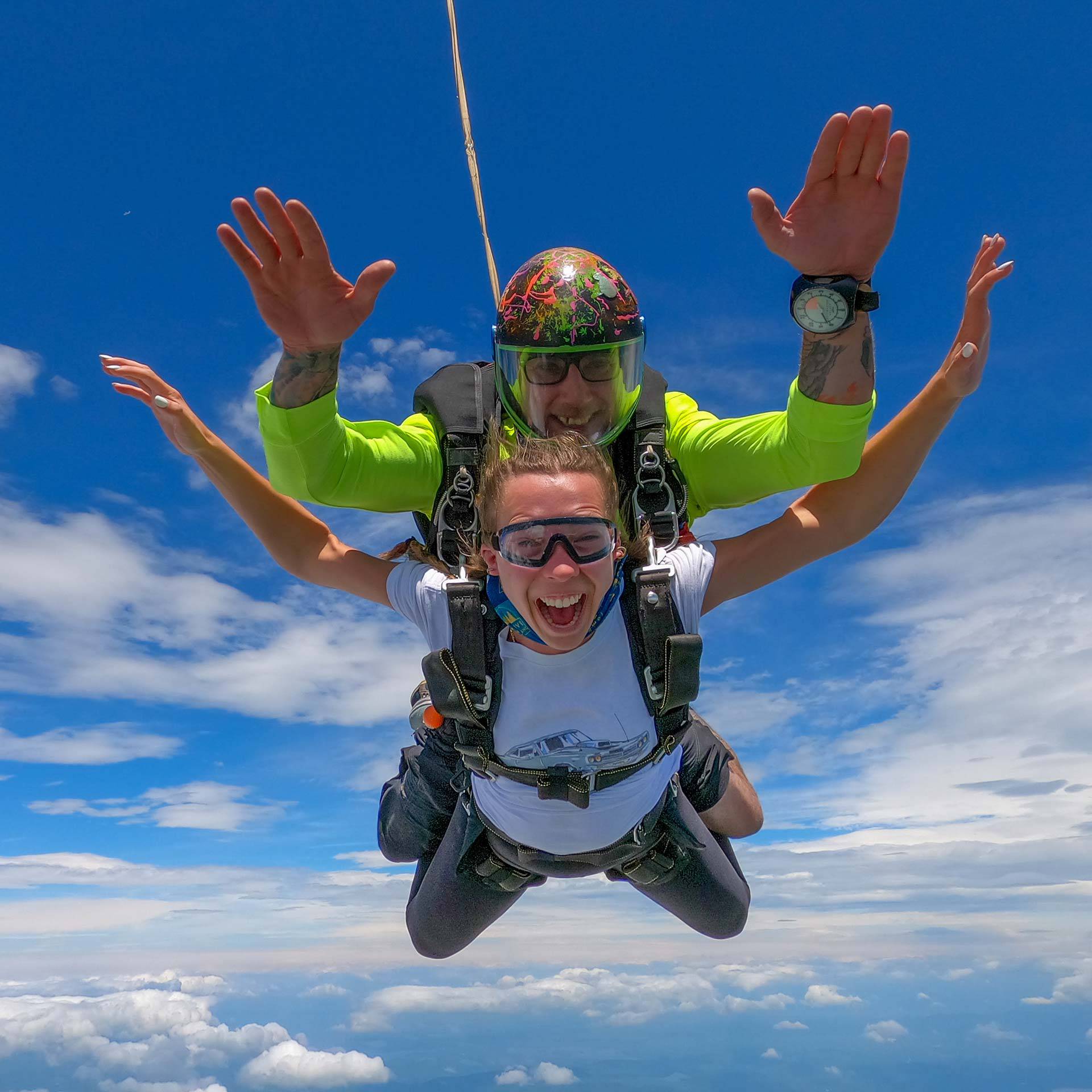
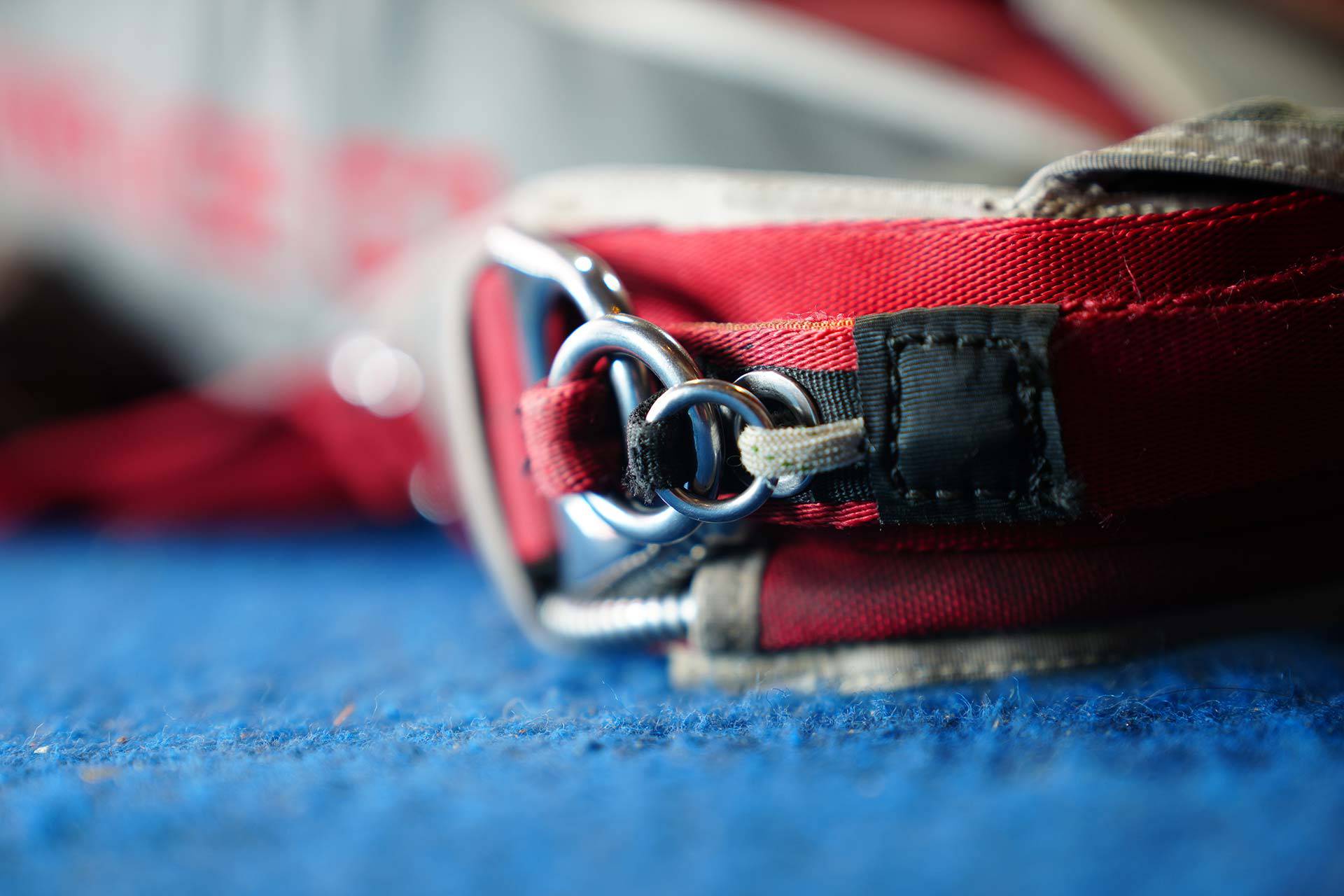
Even More Wicked-Fun Than It Looks!
Come see why the biggest DZ in New England is also the best.

